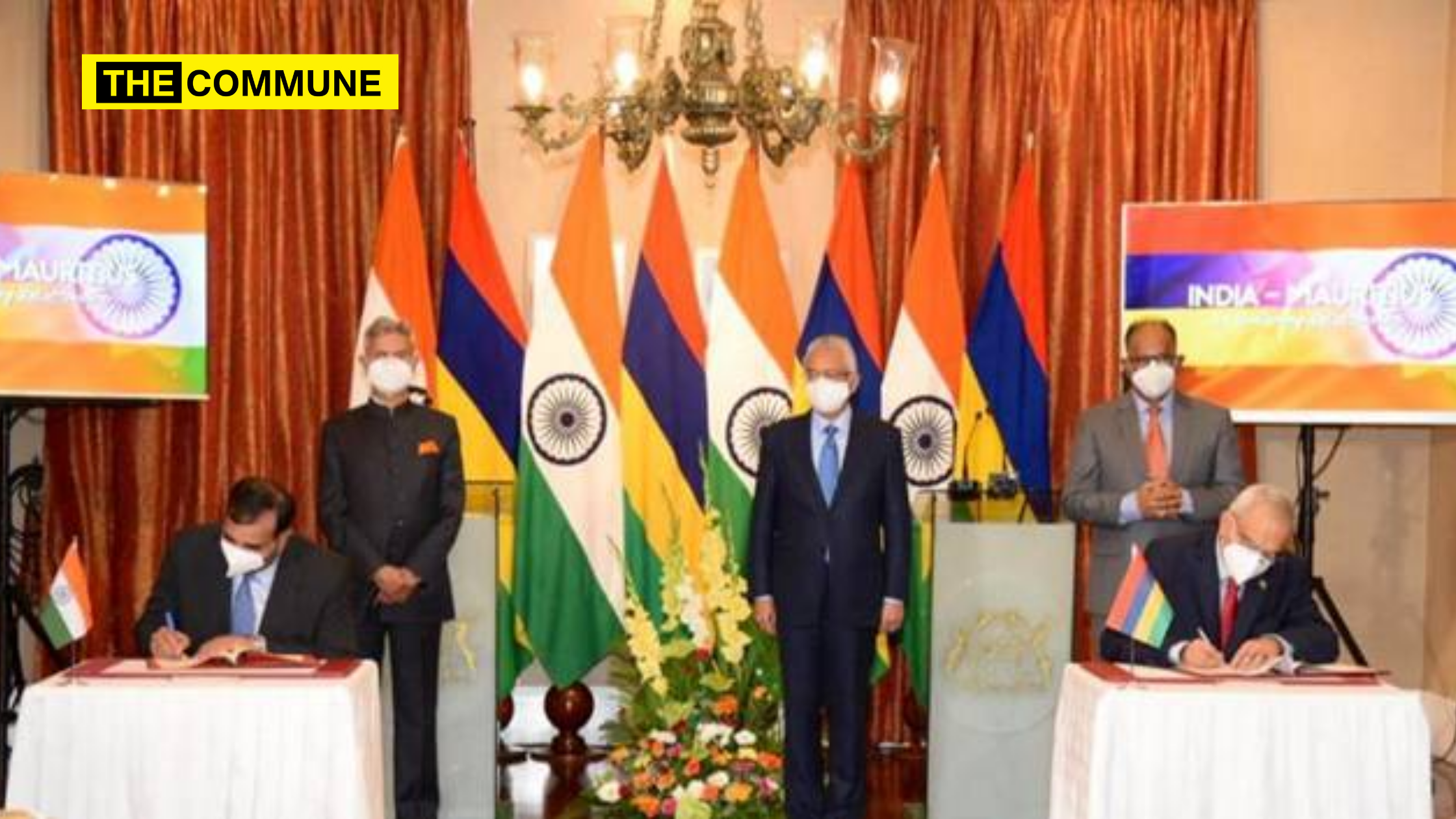
Dr. Anup Wadhawan, Commerce Secretary, Government of India, and Ambassador Mr. Haymandoyal Dillum, Secretary of Foreign Affairs, Regional Integration and International Trade, Government of Mauritius signed the India-Mauritius Comprehensive Economic Cooperation and Partnership Agreement (CECPA) in Port Louis yesterday, in the august presence of Prime Minister of Mauritius Mr. Pravind Jugnauth, and External Affairs Minister, Govt of India, Mr. S. Jaishankar.
CECPA is the first trade agreement signed by India with a country in Africa. The Agreement is a limited agreement, which will cover Trade in Goods, Rules of Origin, Trade in Services, Technical Barriers to Trade (TBT), Sanitary and Phytosanitary (SPS) measures, Dispute Settlement, Movement of Natural Persons, Telecom, Financial Services, Customs Procedures and Cooperation in other Areas.
CECPA provides for an institutional mechanism to encourage and improve trade between the two countries. The CECPA between India and Mauritius covers 310 export items for India, including foodstuff and beverages (80 lines), agricultural products (25 lines), textile and textile articles (27 lines), base metals and articles thereof (32 lines), electricals and electronic items (13 lines), plastics and chemicals (20 lines), wood and articles thereof (15 lines), and others. Mauritius will benefit from preferential market access into India for its 615 products, including frozen fish, specialty sugar, biscuits, fresh fruits, juices, mineral water, beer, alcoholic drinks, soaps, bags, medical and surgical equipment, and apparel.
As regards trade in services, Indian service providers will have access to around 115 sub-sectors from the 11 broad service sectors, such as professional services, computer-related services, research & development, other business services, telecommunication, construction, distribution, education, environmental, financial, tourism & travel-related, recreational, yoga, audio-visual services, and transport services.
India has offered around 95 sub-sectors from the 11 broad services sectors, including professional services, R&D, other business services, telecommunication, financial, distribution, higher education, environmental, health, tourism, and travel-related services, recreational services, and transport services.
Both sides have also agreed to negotiate an Automatic Trigger Safeguard Mechanism (ATSM) for a limited number of highly sensitive products within two years of the Signing of the Agreement.
(Source:PIB)
Click here to subscribe to The Commune on Telegram and get the best stories of the day delivered to you personally.




